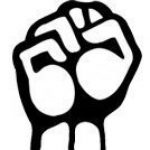On 20 April 2010 I attended a roundtable run by the Equality Authority in Dublin to discuss antiracism. While several of us attending have sat in similar roundtables and other forums for the past 15 years to discuss racism and antiracism, Toyosi Shitta-bey’s killing on Good Friday has clearly moved the EA – curtailed and under-funded though it is – to convene this forum, in a genuine attempt to mobilise members of migrant and ethnic minority groups.
The main speakers were, as usual, white, settled Irish people, but around the table were leaders of migrant-led groups and networks (mostly Africans, with scant representation for Asians and Eastern Europeans, and only one Traveller, Ellen Mongan, the only Traveller who has ever sat on a local authority council). Everyone was asked to speak, and participants outlined their experiences of racism, and spoke of the anger and fear in their groups and neighbourhoods. A few ‘usual suspects’ proposed what has been proposed so many times before: establishing an antiracism forum, reforming the useless 1989 Incitement to Hatred Act (promised so many time by successive ministers for justice), educating and holding information campaigns ( the government has clamped down on public awareness campaigns, but one wonder were these ever really useful?)
However, only Chinedu Onyejelm of Metro Eireann had the courage to say that holding more forums and meetings will make no difference in the absence of government commitment – a sentiment I am completely in agreement with. Furthermore, the government has positively done all it can to portray migrants as ‘a problem’ ever since the first influx of asylum seekers in the early 1990s. Incarcerating asylum seekers in direct provision, thus making it near impossible for them to organise politically; ignoring the appalling conditions they are forced to live under (see, for instance, AkiDwA’s disturbing report on women in direct provision hostels); and making the work permit regime harder and harder for migrants to navigate – all make it patently clear that ‘integration’ is but an empty word.
That said, remember that migrants are doing a lot to integrate themselves and their groups into Irish society through involvement in hundreds of migrant-led networks and assocciations, providing advocacy, education, public information, service provision and culture.
However, too many migrant-support groups are headed by white Irish people. Thus it was not surprising that most speakers stressed – yet again – the need for fair representation. However, when Kensika Monshengwo, formerly of the NCCRI, suggested that Irish people often do a very good job at representing migrants’ and minorities’ needs, Ellen Mongan asked, rightly in my opinion, how long more should Travellers and migrants belong to organisations headed by white, settled Irish.
In the absence of government commitment to allow migrants to represent themselves and live a free and decent life, and its determination to deport as many ‘failed’ asylum seekers as possible (often rounded up at dawn and deported before campaigners have a chance to publicise these deportations) – the valiant Equality Authority has little chance to succeed in re- awakening Irish antiracism. Irish antiracism groups are encountering further difficulties with the recession, due to both scarce funding and more and more people blaming migrants for economic difficulties (see, for instance, media talkbacks on migrants ‘getting apartments, welfare and cars’ as the reason for poor Toyosi’s killing!)
As antiracists we need to be less apologetic, saying loudly and clearly, that we do not want to continue to live in a state that racialises Travellers (who it refuses to define as an ‘ethnic group’) and migrants (who it criminalises for seeking asylum or losing their work permits for no fault of their own, and who, when deemed ‘failed asylum seekers’, it deports mercilessly). We need to eradicate institutional and state racism before there are more killings.
